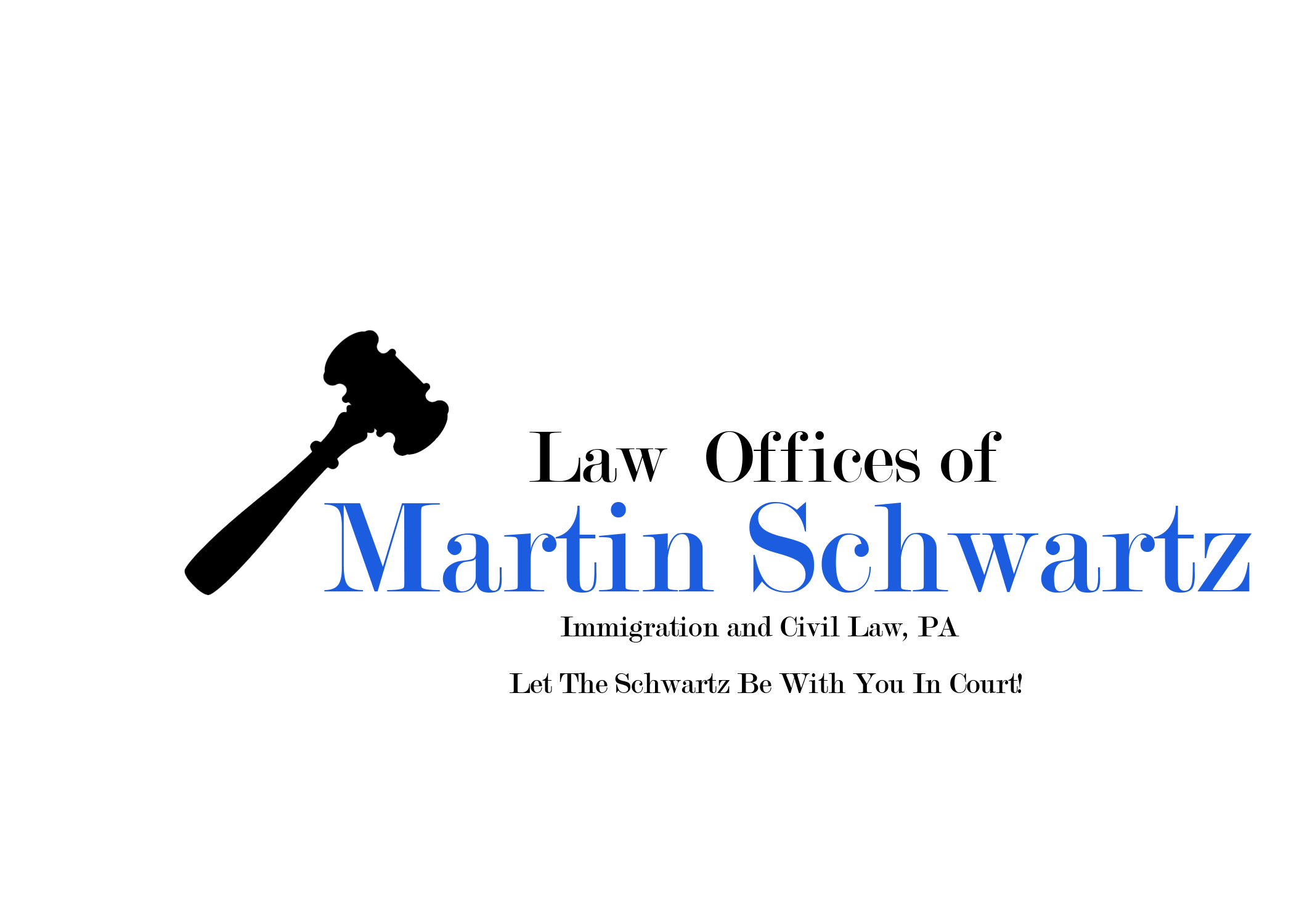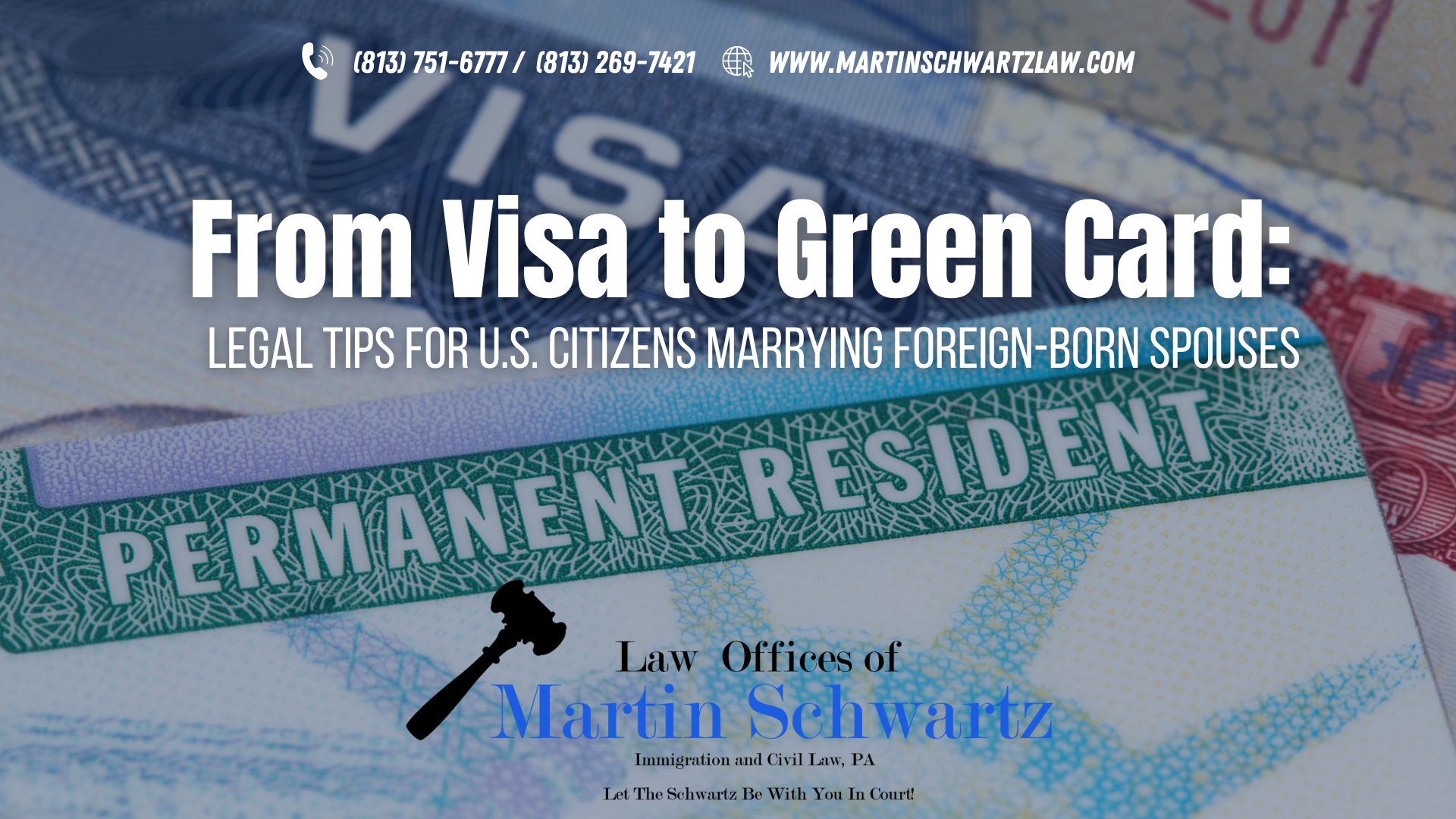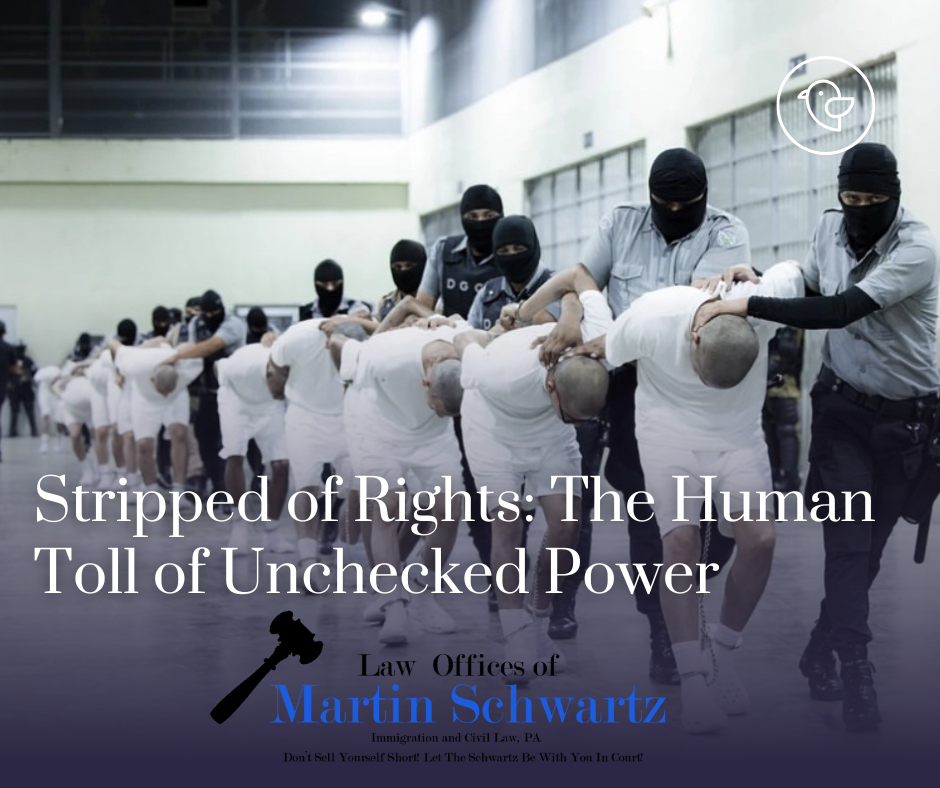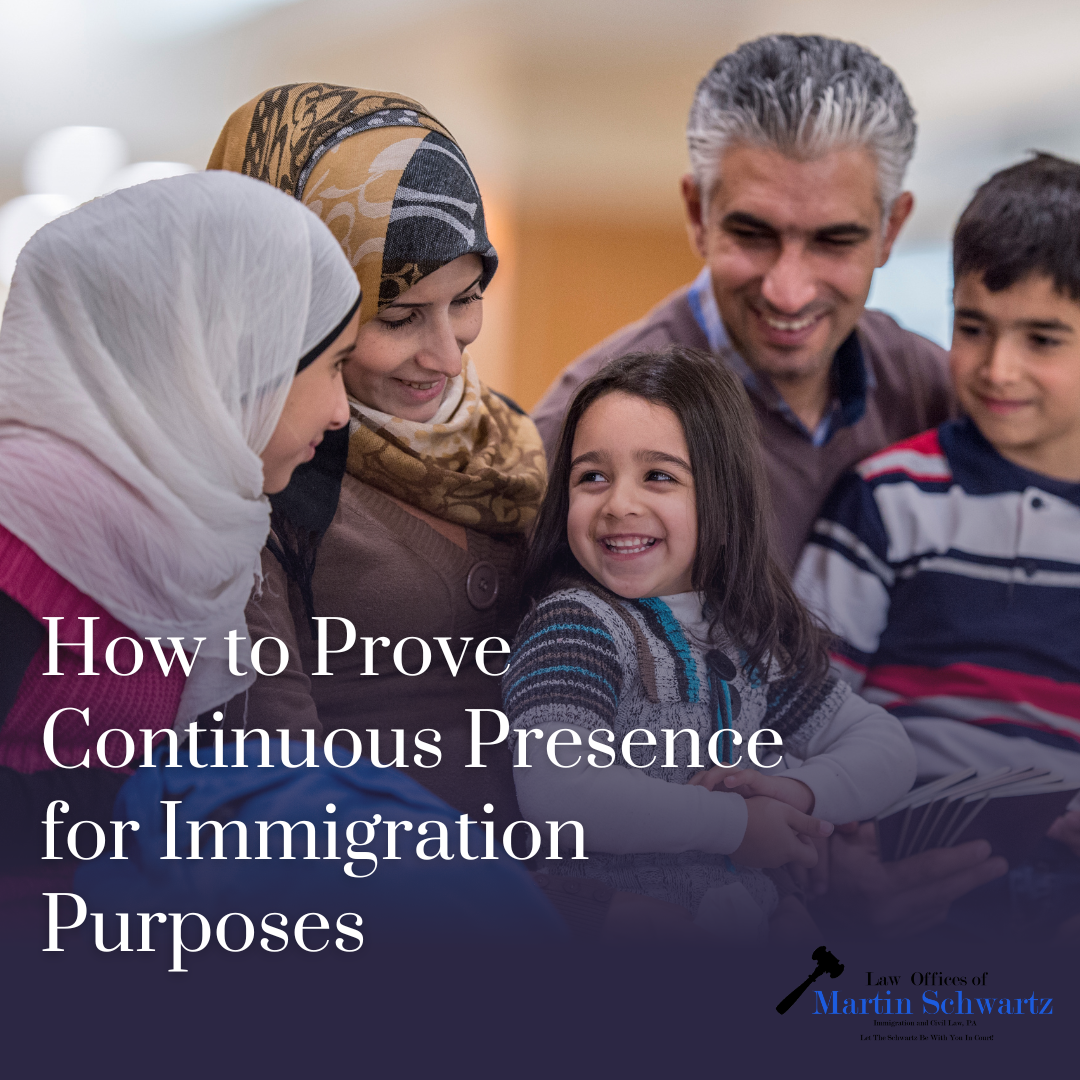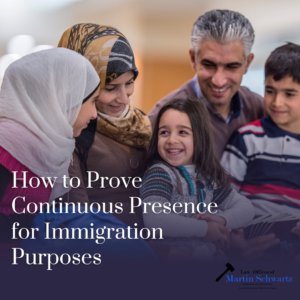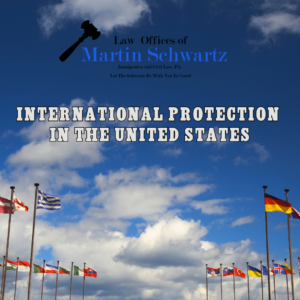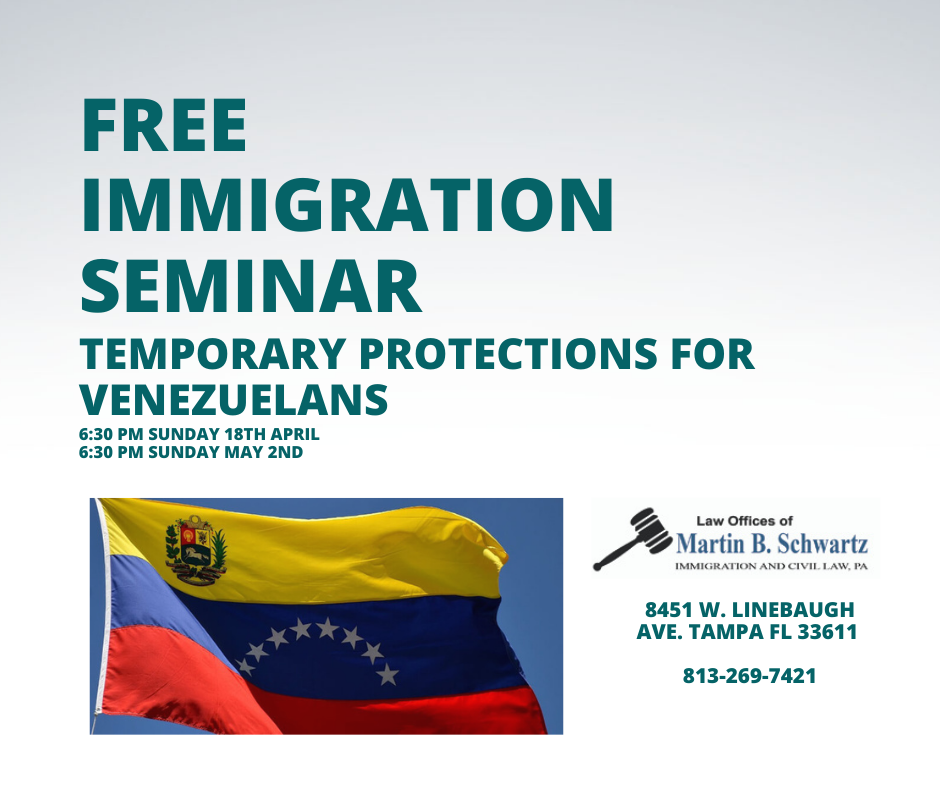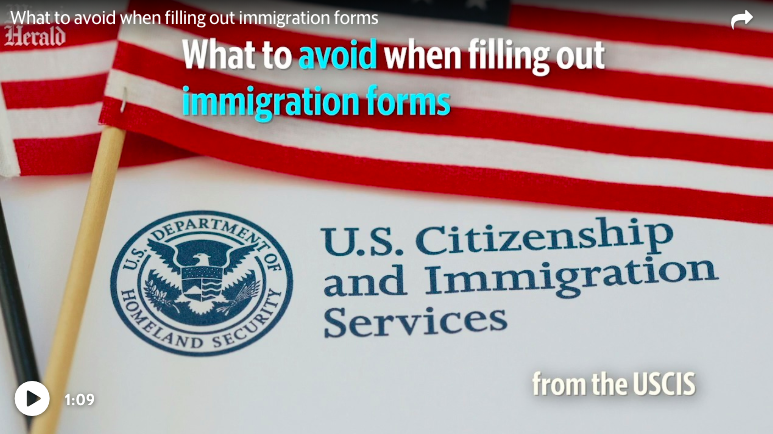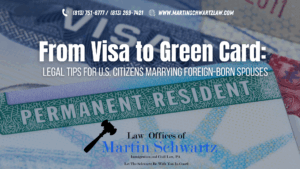
In recent years, U.S. immigration policies have undergone significant changes, impacting the process for immigrants seeking lawful permanent residency through marriage to U.S. citizens. Attorney Martin B. Schwartz provides essential guidance for both attorneys and the general public on how to navigate the complexities of adjustment of status applications under these new policies.
Understanding the Policy Shift
Traditionally, U.S. Citizenship and Immigration Services (USCIS) adjudicated benefits applications separately from offices handling removal proceedings. However, recent policy changes have allowed USCIS to initiate removal proceedings against applicants who have entered the U.S. unlawfully or overstayed their visas upon identifying such status during the adjudication process (The Daily Beast, 2025). This shift has raised concerns about the potential for family separation and the fairness of the system.
Advocates argue that U.S. citizen petitioners possess due process rights and an expectation of privacy in their filings, which should be protected during the adjustment of status process. The following steps outline how to assess whether to proceed with an adjustment of status application for a foreign-born spouse.
Step 1: Determine the Date and Manner of Entry
The first step is to establish how and when your foreign-born spouse entered the United States. If they entered lawfully—such as with a visa, border crossing card, or parole—their entry should be documented with a stamp in their passport or an I-94 record, which can be obtained online at https://i94.cbp.dhs.gov/home. Lawful entry is crucial, as it allows for adjustment of status under Section 245(a) of the Immigration and Nationality Act, provided the individual is otherwise admissible and not subject to grounds of removability.
Conversely, if the individual entered without inspection (EWI), they may face additional challenges. Part II of this series will address strategies for such cases.
Step 2: Assess Criminal History
Ensure that the foreign-born spouse does not have a criminal record that would render them ineligible for adjustment of status. Certain criminal convictions can lead to inadmissibility and disqualify an individual from obtaining lawful permanent residency. Consulting with an immigration attorney can help determine whether any past offenses pose a barrier.
Step 3: Investigate Past Removal Proceedings
Determine whether the foreign-born spouse has ever been placed in removal proceedings. This can be done by checking if they have an immigration file number (commonly starting with “A” followed by eight or nine digits). You can verify their status by calling the Executive Office for Immigration Review’s automated case information system at 800-898-7180 or by visiting https://acis.eoir.justice.gov/en/.
If removal proceedings are indicated, it is advisable to seek legal counsel to understand the implications and explore potential defenses or waivers.
Step 4: Understand Legal Precedents
Legal precedents, such as Bull v. INS, 790 F.2d 869 (11th Cir. 1986), have established that it is an abuse of discretion for an immigration judge to deny a continuance of removal proceedings when an immigrant visa petition is pending. This precedent supports the argument that individuals seeking adjustment of status should not be removed while their applications are under consideration. However, recent policy changes may affect how such precedents are applied, making it essential to stay informed about current practices.
Step 5: Prepare for Enhanced Scrutiny
Be aware that USCIS has implemented stricter guidelines to detect and prevent fraud in marriage-based green card applications. As of August 2025, USCIS requires applicants to explicitly state whether they will pursue adjustment of status or consular processing, eliminating ambiguity in the application process. Additionally, applications are subject to heightened verification procedures to ensure the legitimacy of the marital relationship and the applicant’s eligibility (India Times, 2025; Times of India, 2025).
Conclusion
Navigating the adjustment of status process for a foreign-born spouse requires careful consideration of various factors, including the manner of entry, criminal history, past removal proceedings, legal precedents, and current USCIS policies. While the process may seem daunting, understanding these elements and seeking professional legal guidance can help ensure the best possible outcome for family reunification.
Stay tuned for Part II of this series, where we will discuss strategies for cases involving spouses who entered the U.S. without inspection.
About the Author
Martin B. Schwartz, Esq. is President and Founder of the Law Offices of Martin Schwartz, Immigration and Civil Law, PA, serving the Central and Southern Florida communities since 1994. For inquiries, contact martin@martinschwartzlaw.com.
References (APA)
India Times. (2025, August 2). New policy on marriage-based green card petitions to tackle fraud issued by immigration officials USCIS. India Times. https://indiatimes.com/trending/new-policy-on-marriage-based-green-card-petitions-to-tackle-fraud-issued-by-immigration-officials-uscis-665834.html?utm_source=chatgpt.com
The Daily Beast. (2025, July 15). Trump targets spouses of U.S. citizens in green card crackdown. The Daily Beast. https://www.thedailybeast.com/trump-targets-spouses-of-us-citizens-in-green-card-crackdown/?utm_source=chatgpt.com
Times of India. (2025, August 1). Tougher checks for marriage-based Green Cards: US issues fresh guidelines to detect fraud – All you need to know about the new policy. Times of India. https://timesofindia.indiatimes.com/business/international-business/tougher-checks-for-marriage-based-green-cards-us-issues-fresh-guidelines-to-detect-fraud-all-you-need-to-about-the-new-policy/articleshow/123117342.cms?utm_source=chatgpt.com
